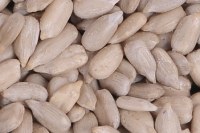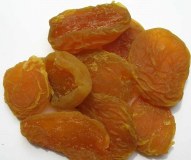Float Window
Price : 30--45 dollars
While floating through the molten tin, the combination of gravity and surface tension results in smooth and flat surfaces on both sides.
a) Smooth and flat surface and good vision.
b) Excellent optical performance.
c) Stable chemical properties.
d) Resistant to acid, alkaline, and corrosion.
Specification of Float Window
Optical windows are an essential component of many optical systems, including lasers, cameras, telescopes, and microscopes. They allow light to enter or exit an optical system while providing a barrier to dust, moisture, and other contaminants. There are various types of optical windows available, including sapphire, quartz, and borosilicate glass.
|
Material |
Float Glass |
|
Diameter |
1 to 500 mm |
|
Diameter Tolerance |
+0/-0.02 mm |
|
Thickness Tolerance |
±0.01 mm |
|
Surface Quality |
10-5 |
|
Surface Figure |
λ/10 |
|
Parallelism |
1 Minute |
|
Coating |
Uncoated, AR, HR, Beamsplitter, etc. |
Types of optical window glass for your needs:
Quartz window
Sapphire glass window
ZnSe selenide window
Germanium IR window
Si window
borosilicate glass windows
Bk7 window
What are Float Glass Optical Windows?
Float glass is a type of glass that is manufactured by floating molten glass on a bed of molten tin. This process results in a uniform thickness and a flat surface, making it an ideal material for optical windows. Float glass optical windows are made from a high-quality, low-iron glass that has excellent optical properties.
Advantages of Float Glass Optical Windows
Float glass optical windows offer several advantages over other types of optical windows. Some of the benefits include:
High Transmission
Float glass optical windows have excellent optical properties, providing high transmission of visible and infrared light.
Low Birefringence
Birefringence is the property of a material that causes light to split into two polarizations. Float glass optical windows have low birefringence, making them suitable for applications that require polarization control.
Cost-Effective
Float glass optical windows are more cost-effective than other types of optical windows, such as sapphire or quartz.
High Durability
Float glass optical windows are highly durable and can withstand harsh environments and temperature fluctuations.
Applications of Float Glass Optical Windows
Float glass optical windows are used in a wide range of applications, including:
Laser Systems
Float glass optical windows are commonly used in laser systems as protective windows or beam splitters.
Microscopy
Float glass optical windows are used in microscopy to protect the lens from dust and other contaminants.
Industrial Applications
Float glass optical windows are used in industrial applications that require high durability, such as sensors, displays, and cameras.
Selection Criteria for Float Glass Optical Windows
When selecting float glass optical windows, several factors should be considered, including:
Material
The quality of the float glass material should be assessed to ensure that it meets the required optical and mechanical properties.
Coatings
Float glass optical windows can be coated with various materials, such as anti-reflection coatings, to improve their optical performance.
Thickness
The thickness of the optical window should be determined based on the application requirements, such as the required transmission or durability.
Size
The size of the optical window should be selected based on the dimensions of the optical system and the required field of view.
Surface Quality
The surface quality of the optical window should be evaluated to ensure that it meets the required specifications, such as roughness and flatness.
Environmental Conditions
The environmental conditions, such as temperature and humidity, should be taken into consideration when selecting float glass optical windows to ensure that they can withstand the intended operating conditions.
Manufacturing Process of Float Glass Optical Windows
Float glass optical windows are manufactured using the following process:
Raw materials, including silica sand, soda ash, limestone, and dolomite, are mixed and melted in a furnace at a temperature of around 1500°C.
The molten glass is then poured onto a bed of molten tin, forming a uniform layer of glass that is cooled gradually.
The cooled glass is then cut into the required sizes and shapes using diamond-tipped tools.
The optical windows are then polished to achieve the required surface quality.
Cleaning and Maintenance of Float Glass Optical Windows
Float glass optical windows require proper cleaning and maintenance to ensure their long-term performance. Here are some tips for cleaning and maintaining float glass optical windows:
Cleaning
Use a soft, lint-free cloth or a microfiber cloth to clean the optical window. Avoid using paper towels or abrasive materials, as they can scratch the surface of the window.
Apply a small amount of a gentle cleaning solution, such as isopropyl or lens cleaning solution, to the cloth.
Gently wipe the surface of the optical window in a circular motion, starting from the center and moving towards the edges.
Use a dry cloth to remove any remaining cleaning solution.
Maintenance
Store the optical windows in a clean, dry environment to avoid contamination and damage.
Inspect the optical windows regularly for any signs of damage or wear, such as scratches or cracks.
Handle the optical windows with care, using gloves or other protective equipment to avoid fingerprints or smudges.
Avoid exposing the optical windows to extreme temperatures or humidity, as this can affect their optical properties.
FAQs
Float glass optical windows are a cost-effective and high-quality option for many optical applications. They offer excellent optical properties, low birefringence, and high durability. When selecting float glass optical windows, it is important to consider factors such as material, coatings, thickness, size, surface quality, and environmental conditions. Proper cleaning and maintenance of float glass optical windows can ensure their long-term performance and reliability.
What is float glass?
Float glass is a type of glass that is manufactured by floating molten glass on a bed of molten tin.
What are the advantages of float glass optical windows?
Float glass optical windows offer high transmission, low birefringence, cost-effectiveness, and high durability.
What are some applications of float glass optical windows?
Float glass optical windows are used in laser systems, microscopy, and various industrial applications.
How should I clean float glass optical windows?
Use a soft, lint-free cloth and a gentle cleaning solution, such as isopropyl or lens cleaning solution.
How can I maintain float glass optical windows?
Store them in a clean, dry environment, handle them with care, and inspect them regularly for damage or wear.
If you are looking for a reliable custom optics supplier, please contact us, and we will be your best partner.
Contact : wei Fande, 0086 374 2088716
Good deal: buying from seller
We invite you to read our terms of use. You can also visit our FAQ section and see our information section on the risks associated with counterfeiting.
|
This page is about importers and exporters of Float Window Search in a category : Everything else / Bulk Search in a category : float, window |
Tuesday, February 17, 2026
1 Factory supply directly. 2 Certificate: HACCP BRC KOSHER 3 Original Place: Inner Mongolia 4 Raw&Dried 2014 Crop 5 Moisture ≤7.5% putity ≥99.95% broken ≤ 7% 6 Natural colour and smell. 7 Free of glass,metal,hair. 8 Food additive : bread bakey Hand Picked You can fried or salted...
San Xin Trade Co.,Ltd
- Aimme
- 015400 - Shanba
- +86 478 6620015
Tuesday, February 16, 2016
Quantity : 1000 - Price : 1500 USD/ MT CIF
We are a professional manufacture and exporter of dried apricot, raisin and goji berry, we can supply you dried apricot, brown raisin, golden raisin, green raisin and goji berry with high quality and competitive prices. We can do small pack and bulk pack as buyers' requirements,...
KHUN JACK PARTNERSHIP LIMITED
- 50000 - CHIANG MAI
- +66 9 56 19 49 81
Tuesday, November 24, 2015
Quantity : more than
Application The cables are similar in design and application to CW 1308, but with Low Smoke Halogen Free cores and sheath. CW 1600 has the added advantage of an Aluminium/Polyester foil screen and drain wire. A fire barrier tape is included on cable with more than 6 pairs. The cables...
caledonian cables limited
- 999077 - hongkong
- +85 2 21 16 10 40
- 852 21161040








